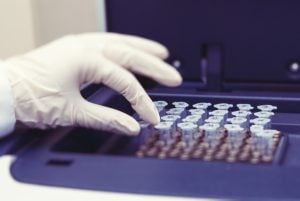'Donor'-Conceived Dutch Demand Data
Did a recently deceased fertility doctor use his own sperm for IVF in his clinic?
 Last year, we had a male fertility doctor in the United States who allegedly swapped out donor sperm with his own, fresh samples. Ew. But this isn’t just an American problem.
Last year, we had a male fertility doctor in the United States who allegedly swapped out donor sperm with his own, fresh samples. Ew. But this isn’t just an American problem.
In the Netherlands, twelve donor-conceived individuals have brought a lawsuit, claiming that a recently deceased fertility doctor is likely their father. Like the American case, they argue that the Dutch doctor wrongfully substituted his own sperm for what was believed to be donor sperm.
The doctor, Dr. Jan Karbaat, ran a sperm bank outside of Rotterdam for almost 30 years. The sperm bank claims credit for the birth of approximately 10,000 children. But in 2009, the clinic closed in disgrace when an investigation revealed that the clinic’s poorly kept records meant that sperm donors could not be reliably be identified. Oops.

Legal Contract Review in Under 10 Minutes? Here’s How
A Right To Know. The recordkeeping glitch didn’t just result in an embarrassing legacy for the clinic. It was also a serious breach of Dutch law, which requires that information be kept in order to allow all donor-conceived children to know the identity of their donor-parent once they turn 16 years old. Now a Swiss activist organization, the Defense of Children, is helping the plaintiffs with the Karbaat lawsuit, in order to draw attention to donor-conceived children’s right to know their biological lineage.
A Scarce Resource. Despite the millions of *cough* samples that most men carry around with them, donated sperm is a scarce resource in the Netherlands. With the Dutch requirements that (1) donor identities be revealed to their resulting children, and (2) the prohibition on donors receiving payment for their services, it is little wonder that Dutch men are not raising their hands to donate. Karbaat himself was quoted in 2004 complaining that he ran an ad for donors and received zero responses. So it’s very likely that he was doing what he (allegedly) did in order to not turn away patients. (Suspiciously, Karbaat requested that no DNA tests be conducted on him after his death.)
Will Travel For Sperm. The sperm shortage in the Netherlands — wait, I mean Holland; wait, I mean for the Dutch — has led women to travel to neighboring countries for their plentiful reproductive gold. In Belgium, for instance, donors can remain anonymous in perpetuity. And in Denmark, donors can both remain anonymous and receive payment (sweet!). Nothing is rotten there, for sure.
What about the U.S.? No federal law or state law, to date, requires the disclosure of a sperm donor’s identity. Moreover, American men are permitted to receive compensation for their hard 20 minutes of labor. As a result, the United States has many, many sperm banks ready to lend a hand when needed. (Har har.) Of course, despite this, we have not been without our sperm-swapping doctors or misrepresented donors (remember the 160 IQ, five-language-speaking, neuroscience Ph.D. who turned out to be schizophrenic felon?).
Sponsored

Legal Contract Review in Under 10 Minutes? Here’s How

How Thomson Reuters Supercharged CoCounsel With Gen AI Advances


Data Privacy And Security With Gen AI Models

Curbing Client And Talent Loss With Productivity Tech
Does It Matter What The Law Says? There are certainly those out there who argue that donor-conceived children can always find their donors, regardless of “anonymity.” Wendy Kramer, founder of the Donor Sibling Registry, tells the personal story of her donor-conceived son finding his donor by merely submitting a commercial DNA cheek-swab test, and matching the results to the information found in the donor profile. And poof! Donor identified.
Because the available DNA tests — as well as access to information over the internet and otherwise — continue to expand and improve, there is no doubt that donor identification will become more common. Of course, the fear is that other countries will follow in Netherland’s footsteps and experience a drought in available donors. Although we don’t yet have an answer to the ethical question of whether we have a “right” to know our biological contributors, technology may soon make the question moot.
 Ellen Trachman is the Managing Attorney of Trachman Law Center, LLC, a Denver-based law firm specializing in assisted reproductive technology law, adoption, and estate planning, and Co-Director of Colorado Surrogacy, LLC, a surrogacy matching and support agency. You can reach her at [email protected].
Ellen Trachman is the Managing Attorney of Trachman Law Center, LLC, a Denver-based law firm specializing in assisted reproductive technology law, adoption, and estate planning, and Co-Director of Colorado Surrogacy, LLC, a surrogacy matching and support agency. You can reach her at [email protected].
Sponsored

Tackling Deposition Anxiety: How AI Is Changing The Way Lawyers Do Depositions








